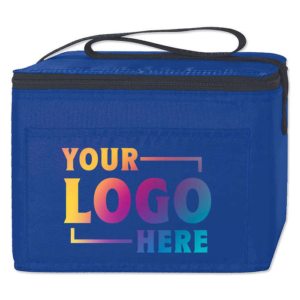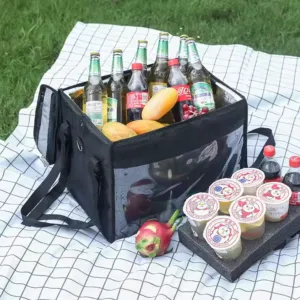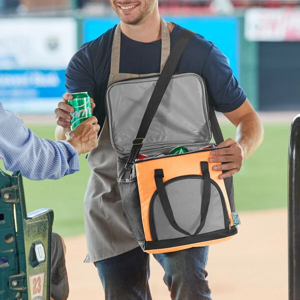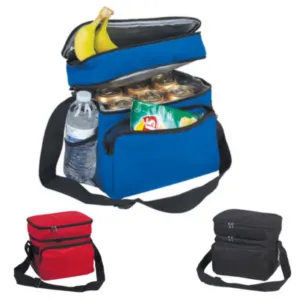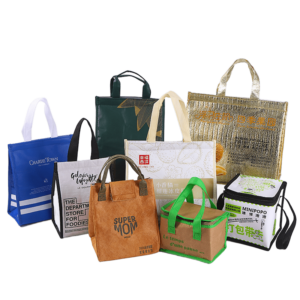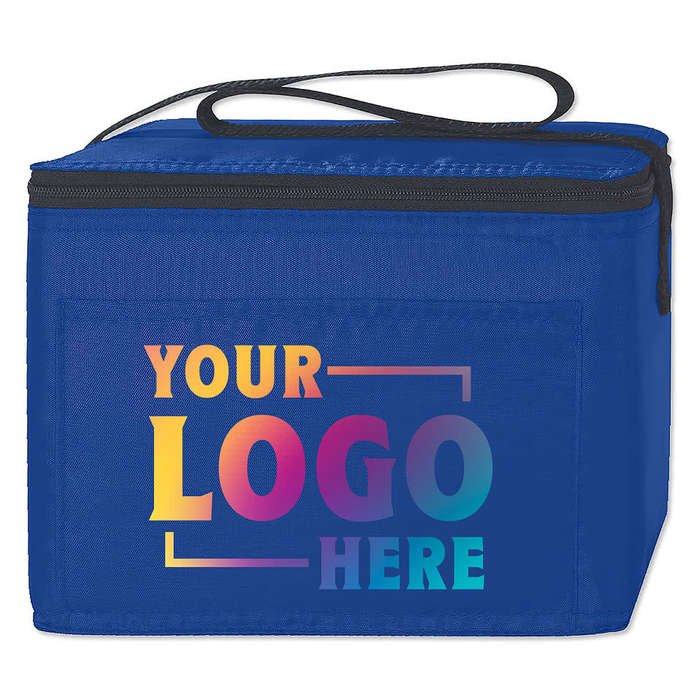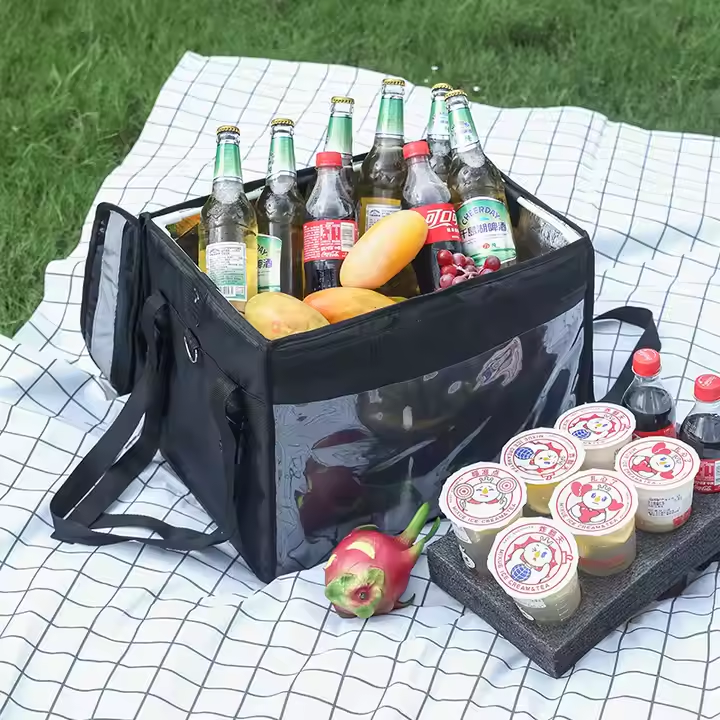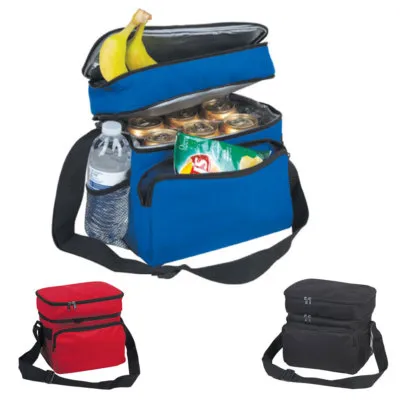
When you're out camping or hiking, keeping your food cold or frozen can be a challenge. Whether it's a long hike, a multi-day camping trip, or just a short weekend getaway, it's essential to know the best ways to store and preserve your food. But how do you keep frozen food frozen when camping or hiking, and how long can frozen food last in a cooler bag? If you've been wondering how to properly manage your food temperature while enjoying the outdoors, this guide has got you covered.
In this article, we'll explore practical tips on keeping frozen food frozen while hiking and camping. We’ll also discuss how long frozen food can last in cooler bags, offering insights that could make your next outdoor adventure more enjoyable.
Keeping frozen food frozen during outdoor activities requires a combination of the right cooler bags, ice packs, and a few smart techniques. By following these simple tips, you can ensure that your meals remain fresh and safe.
How to Keep Frozen Food Frozen When Camping?

Camping trips can be tricky when it comes to keeping frozen food cold1. With the lack of a fridge or freezer, you need the right tools and strategies to maintain the temperature of your food. The most crucial factor is choosing the right cooler bags and packing them effectively.
How to Pack a Cooler Bag for Camping
-
Pre-freeze Your Food: Before packing your frozen food, make sure it’s fully frozen. Pre-freezing your meals ensures they stay colder for longer.
-
Use Ice Packs and Dry Ice2: For extended cold storage, dry ice is an excellent option because it keeps the food frozen longer. Regular ice packs work well for shorter trips but need to be replenished.
-
Layer the Cooler Correctly3: When packing your cooler bag, place the heaviest items at the bottom and ice packs or dry ice at the top. This will help the food stay frozen longer and maintain a steady temperature.
-
Keep the Cooler Closed: Minimize opening the cooler. Every time you open it, cold air escapes, and the temperature rises, reducing the effectiveness of the cooling methods.
Table: Tips for Keeping Frozen Food Frozen While Camping
| Tip | Benefit |
|---|---|
| Pre-freeze your food | Ensures longer freezing duration |
| Use dry ice or ice packs | Keeps food frozen for extended periods |
| Layer the cooler properly | Helps maintain a steady temperature |
| Keep the cooler closed | Prevents temperature from rising |
How to Keep Frozen Food Frozen When Hiking?
Hiking presents a unique challenge for keeping food frozen. The key here is portability and efficiency. Since you're moving from place to place, it’s essential to use a combination of high-quality insulated cooler bags4 and efficient packing methods.
Packing Tips for Hiking
-
Invest in a High-Quality Cooler Bag: A good insulated cooler bag designed for hiking will keep food cold for hours. Look for bags with double insulation and a leak-proof seal for best results.
-
Freeze Water Bottles: Instead of just using ice, freeze large water bottles and place them in the cooler. As they thaw, you’ll have drinkable water and added cooling for your food.
-
Pack Smaller Portions: To reduce the amount of time you need to keep food cold, consider packing smaller, pre-portioned meals that you can consume quickly.
-
Keep the Food in Insulated Bags: For short hikes, insulated bags or pouches can keep items cold. When hiking for a longer time, use hiking-specific cooler bags to preserve the temperature for an extended period.
Table: Best Practices for Keeping Frozen Food Frozen While Hiking
| Tip | Benefit |
|---|---|
| Use a high-quality cooler bag | Provides better insulation and durability |
| Freeze water bottles | Keeps both food and water cool for longer |
| Pack smaller portions | Makes food easier to access and keeps it cold longer |
| Use insulated bags | Helps preserve cold temperature on shorter hikes |
How Long Can Frozen Food Last in a Cooler Bag?
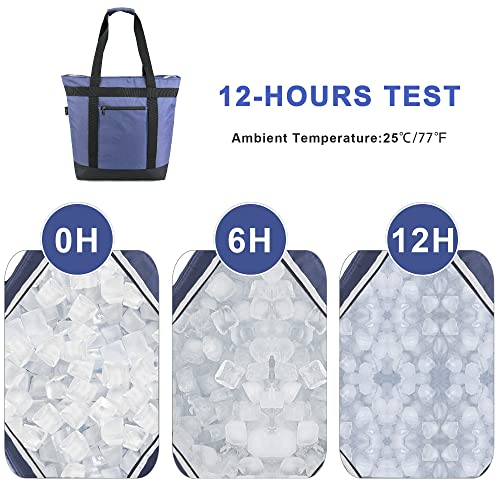
The duration frozen food will last in a cooler bag depends on the type of cooler bag, insulation quality, and external temperature5. However, there are general guidelines you can follow:
Estimated Duration
-
Basic Cooler Bags: In a basic cooler bag with regular ice packs, frozen food can last anywhere from 1 to 2 days. The quality of the cooler bag, the amount of ice, and the initial temperature of the food will all affect this.
-
High-Quality Insulated Cooler Bags: Cooler bags designed for outdoor use can keep food frozen for up to 4 days if packed properly with enough ice or dry ice. These bags are usually made with advanced insulation technology to maintain a lower temperature for extended periods.
-
Extreme Cold with Dry Ice: If you use dry ice in combination with regular ice packs or water bottles, frozen food can last up to 7 days or more. This is particularly useful for longer trips or when you need to store large quantities of frozen food.
Table: How Long Frozen Food Lasts in Different Cooler Bags
| Cooler Type | Duration Frozen Food Lasts | Notes |
|---|---|---|
| Basic Cooler Bags | 1–2 days | Requires regular replenishment of ice |
| High-Quality Insulated Bags | 3–4 days | Provides longer cooling duration |
| Cooler Bags with Dry Ice | Up to 7 days | Ideal for longer camping or hiking trips |
Conclusion
Keeping frozen food cold while camping and hiking doesn’t have to be difficult. By investing in high-quality insulated cooler bags, packing properly, and using techniques like pre-freezing food or incorporating dry ice, you can enjoy fresh, frozen meals no matter where your adventures take you.
As a business that specializes in producing durable, customizable cooler bags, we at JiaRong Packaging understand the importance of quality when it comes to food storage. Whether you’re camping, hiking, or heading on any outdoor excursion, make sure you have the right tools to keep your food fresh. Visit our website for more information on our high-quality cooler bags designed for the outdoors: JiaRong Packaging.
-
Discover tips on selecting cooler bags that keep food cold for extended periods during outdoor adventures. ↩
-
Learn how dry ice can extend the life of your frozen food while camping and outdoor activities. ↩
-
Discover expert advice on how to pack and use coolers to ensure consistent food temperature. ↩
-
Learn about the benefits of using insulated cooler bags for hiking and outdoor adventures. ↩
-
Understand how temperature fluctuations impact the effectiveness of cooler bags during outdoor activities. ↩


